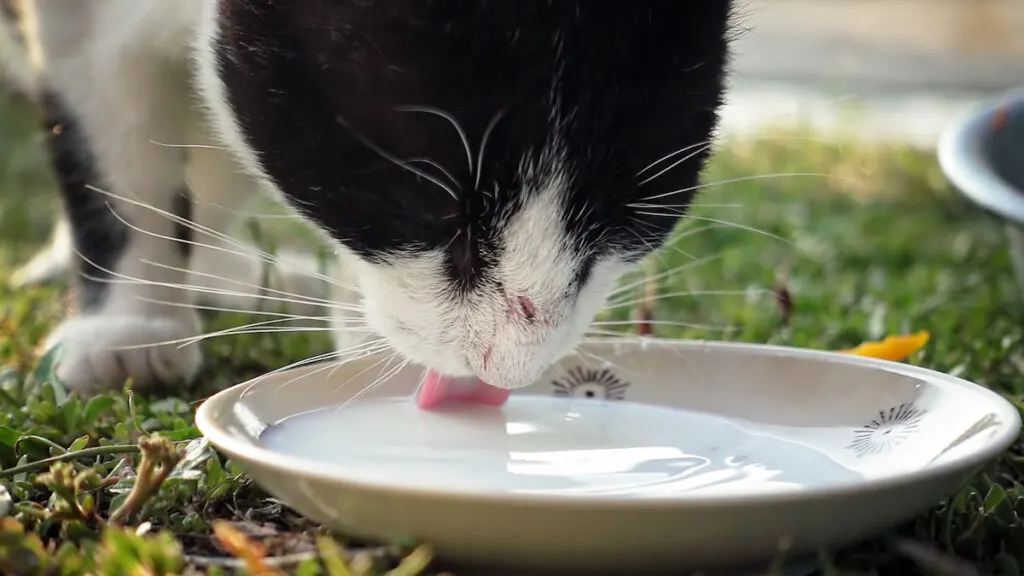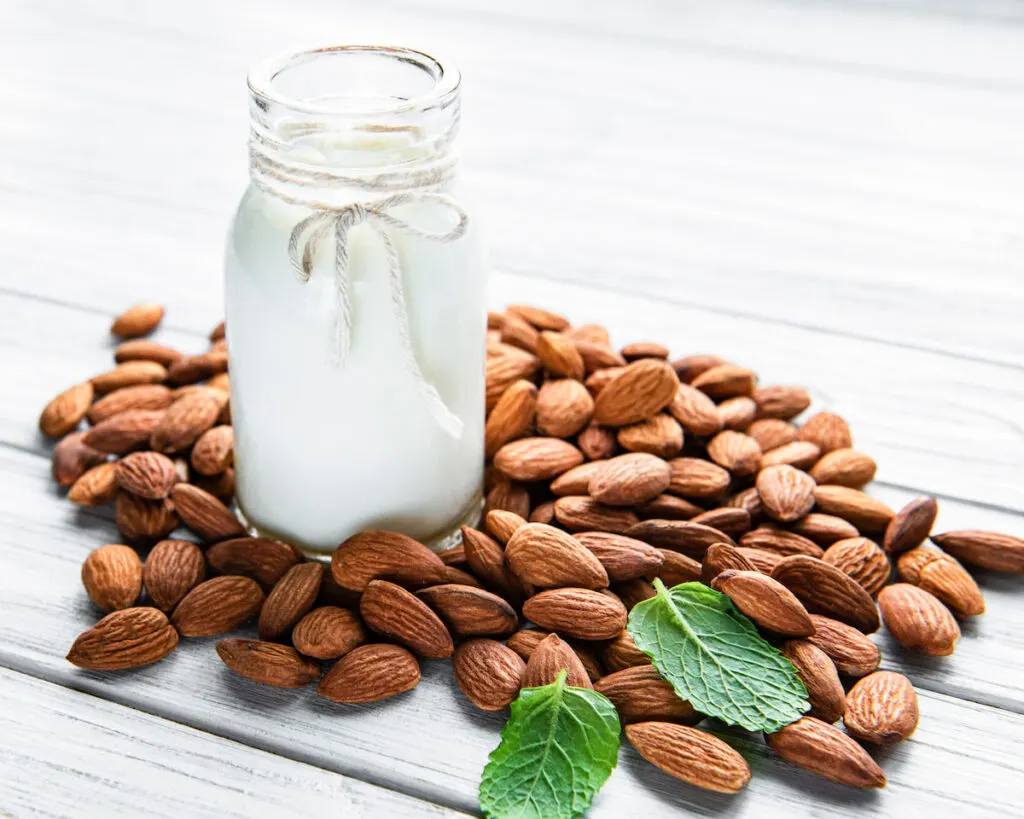As kids, many of us grew up reading books or watching TV shows that depicted cats drinking bowls of warm milk. If you’d ask any of us, we’d list milk as every cat’s favorite drink.
The reality, however, like so many things we discover as we grow older, is far from the stories we were told when we were younger. There are a lot of issues when it comes to felines and milk. Understanding the proper nutrition for cats is important for owners.
Are all cats lactose intolerant?
The vast majority of cats are lactose intolerant. They lack the digestive enzymes required to break down the lactose in healthy ways.
We all want our cat companions to grow up healthy and happy. Knowing how foods affect our pets and what types of food to give them are a big part of that.
If you’re wondering whether milk is safe to give your cat, there are some things you should consider. Read on to learn more about concerns around milk and how it could affect your cat.

Table of Contents
Are Cats Lactose Intolerant?
Most cats love drinking milk. All of those pictures in books and scenes in cartoons are there for a reason. If you set a bowl of milk down in front of a cat, odds are they are going to drink it up quickly and enjoy it.
Kittens, of course, drink milk. However, most kittens can only digest milk up until they are around eight weeks old, at which point they lose the enzymes that digest lactose.
Once they are weaned, then they should stop drinking milk permanently since most adult cats are lactose intolerant.
Lactose intolerance is the body’s inability to fully digest the sugar, or lactose, found in milk. Most people and animals experience symptoms like diarrhea, bloating, and gassy feelings as a result of lactose intolerance.
If you’ve ever fed your cat some milk and soon after discovered they are having digestive issues, milk is the likely culprit.
Milk will affect different cats on a variety of levels, so don’t equate the absence of obvious symptoms as meaning it’s ok for your cat to drink milk. They could have minor symptoms that they are unable to communicate.
If your cat is one of the few that doesn’t have an issue, lucky you! Still, it’s probably a good rule for most owners not to take a chance with feeding their cat milk just to stay on the safe side.
Is Milk Bad for Cats?
Not only is milk bad for cats, but any milk-derived product can be harmful. That means you should keep anything like cheese or ice cream out of reach.
If your cat is particularly lactose-sensitive, then even a small amount of dairy can trigger negative symptoms.
Exactly how bad milk is for your cat will depend on their health profile. Milk can mildly affect some cats and be very harmful to others.
The best path is just to keep milk out of your cat’s diet and feed them water and other lactose-free products.
Can Cats Have Lactose-Free Milk?
Lactose-free milk is typically safe to give to cats. Many milk producers have been making lactose-free milk for years. They’ve found a way to remove any trace of lactose milk for people with intolerances.
That means you can feed your cat lactose-free milk without a worry about what it will do to their digestion.

You can find lactose-free milk at most local grocery stores and large chain grocers. As with anything new you add to your cat’s diet, start with small amounts and see how your cat reacts.
If you’re worried, you can always ask your veterinarian for advice on what you should do.
What Happens When a Cat Drinks Milk with Lactose?
It can be hard to tell what happens to your cat when they drink milk. Symptoms can range from mild to severe.
Even if your cat has no visible signs like diarrhea, it’s difficult to know how they are feeling inside. They could be dealing with awful stomach aches that result from gas or cramping.
What we can’t see is that the milk is going into a body that is ill-equipped to deal with it. As a result, it has to work overtime to process the milk. That means discomfort for your cat.
You can look to see whether your cat is particularly irritable after drinking milk. They may not want to be pet or held, or they might move around a lot trying to get comfortable.
Are Kittens Lactose Intolerant?
There are so many amazing things in nature, and animals have adapted incredibly to survive and thrive in the world around them. Kittens are no exception.
Kittens, of course, drink their mothers’ milk when they are born. Milk consumption is critical to their long-term health at birth and later on in life.
Kittens have the enzymes necessary to break down lactose when they are born. Usually, they have these enzymes up until they are around eight weeks old. Then, the enzymes disappear.
If you’re thinking about feeding a small kitten milk, be sure you know how old they are to know whether they still have the enzymes. Give them a small amount and see how they react.
Is Almond Milk Good for Cats?
Almond milk is a popular milk alternative for humans, and it’s healthy for cats as well. Almonds are not toxic for cats and are safe to eat.

Most cats love drinking almond milk. As with any other food or drink type you introduce to your pet, do it slowly and in small amounts to make sure they react well and enjoy it.
Almond milk is rich in omega-3 fatty acids, which could be a good immune system booster for your cat. It could also lead to better long-term cardiovascular health.
Is Milk Bad for a Cat’s Kidneys?
Many cats struggle with kidney issues, and their owners worry about how renal disease affects their pets.
While it’s hard to tie milk consumption directly to issues, drinking milk can be bad for overall kidney health. That’s because drinking milk gives many cats diarrhea.
Animals with diarrhea often become dehydrated easily because the water is passing through their digestive system too quickly and can’t be absorbed by the body. This can starve your cat’s kidneys of the vital water they need.
Can Cats Drink Cream?
Just like milk, cream is a dairy product that contains lactose. Feeding your cat cream could lead to diarrhea, vomiting, and other digestive issues.
The best course of action with regard to your cat’s diet is to avoid any and all dairy products, including milk and cream.
Final Thoughts
We all want what’s best for our cats. Avoiding milk and staying away from some of the stereotypical depictions of cats gleefully drinking a warm bowl of milk will keep your cat healthy and strong.
When in doubt, give your cat water. It’s great for their overall health, and many cats aren’t getting enough water in their system as it is.
